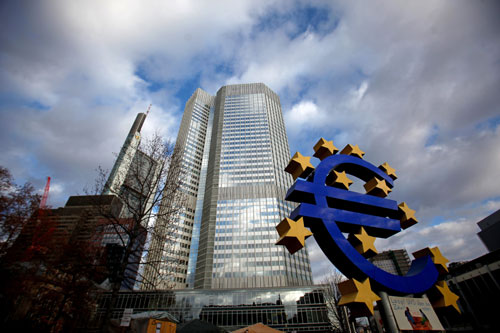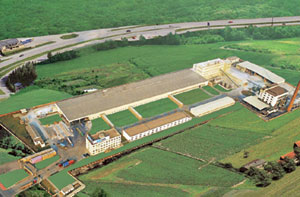EU help must be tied to IMF reform: Economist
Updated: 2012-01-11 10:21
By Lan Lan (China Daily)
|
|||||||||||
Emerging economies entitled to larger share of votes in organization
BEIJING - China's contribution to any European Union (EU) bailout through the International Monetary Fund (IMF) must be linked to quota reform by the international institution, said Li Daokui, a leading Chinese economist, on Tuesday.
|
 |
|
The European Union is China's largest trading partner. According to experts, the eurozone debt crisis will have a limited short-term effect on China, as the economy has greatly reduced its reliance on external demand. [Photo/Bloomberg] |
"If they want emerging countries to put money in, do it in a business-like way. It's necessary for the EU to make a commitment to release part of its shares to emerging economies," Li said on the sidelines of a seminar hosted by the Italian Embassy in Beijing.
He is the director of the Center for China in the World Economy at the Tsinghua University School of Economics and Management, as well as a central bank adviser.
"Details could be discussed, and gaining approval from the IMF is not easy, but it's a reasonable principle that providing money must be linked to quota reform," Li added.
The EU's total quota in the fund is nearly 40 percent, followed by the US at about 17 percent.
China's current quota has been raised to about 6.39 percent from 3.9 percent previously.
Emerging economies have long sought a bigger say in the IMF. A member nation's quota - a financial stake in the fund - determines its share of the votes.
"China and other emerging economies have a lot to gain from being active in multilateral bodies, and I'm very pleased to see how China has grown its role in the IMF policy. It's very noticeable and constructive," said Annika Melander, head of the economic and financial affairs section of the Delegation of the European Union in China.
The G20 meeting in Cannes, France, in October agreed to help the EU increase its bailout fund through the IMF. Details will be discussed by financial ministers at a meeting in February.
The EU is China's largest trading partner, and Chinese exporters have seen demand fall due to the eurozone debt crisis.
China's trade surplus fell 14.5 percent to $155 billion in 2011, its lowest level in six years, according to the General Administration of Customs.
Li said that the eurozone debt crisis will have a limited short-term effect on China, as the economy has greatly reduced its reliance on external demand.
"The trade surplus as a percentage of GDP may fall to 1 percent or so in 2012 and it will turn to zero in the coming years," Li said.
The trade surplus fell to 2 percent of GDP in 2011 from about 8 percent in 2007.
During China's Central Economic Work Conference last month, the government said it would continue the active expansion of imports while maintaining stable exports.
A strong euro is good news for China, Li said, adding that a diversified currency portfolio would help the Chinese currency play a role in global economic integration.
China should take part in the EU bailout through international institutions, he said.
Zhang Jianping, director of the international economic cooperation department under the National Development and Reform Commission's think tank, said investing through the IMF would be a better option than investing in the European Financial Stability Facility (EFSF).
The EFSF, which is the European bailout mechanism, would be a high-risk channel for investment due to uncertainties in the European market.
Related Stories
Time for EU to turn the tide in its favor 2011-06-03 10:52
Young minds set to forge better EU-China relations 2011-01-14 10:41
Deepening cooperation 2011-01-07 07:40
Making the right strategic moves 2011-05-13 13:31
- Rate of crude oil imports falls
- Cross-border M&As see rapid growth in '11: report
- EU help must be tied to IMF reform: Economist
- Automobile JVs look to emerging markets
- Trade surplus continues declining trend
- Energy use to be regulated by central system
- Local debt poses threat to economy
- Logistics firms to expand abroad









